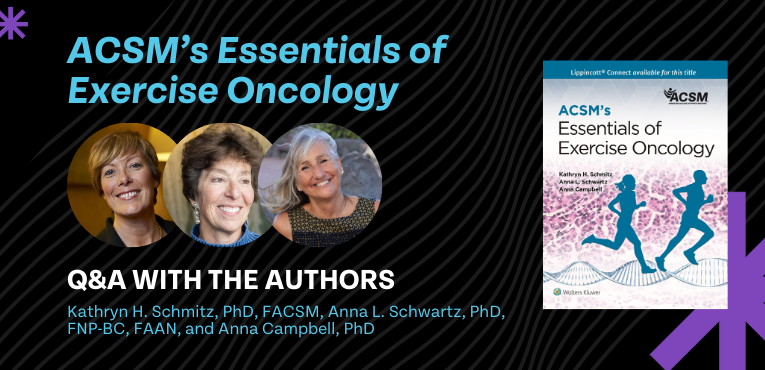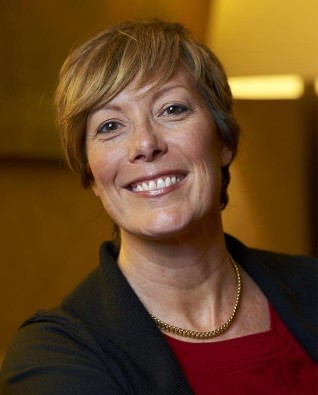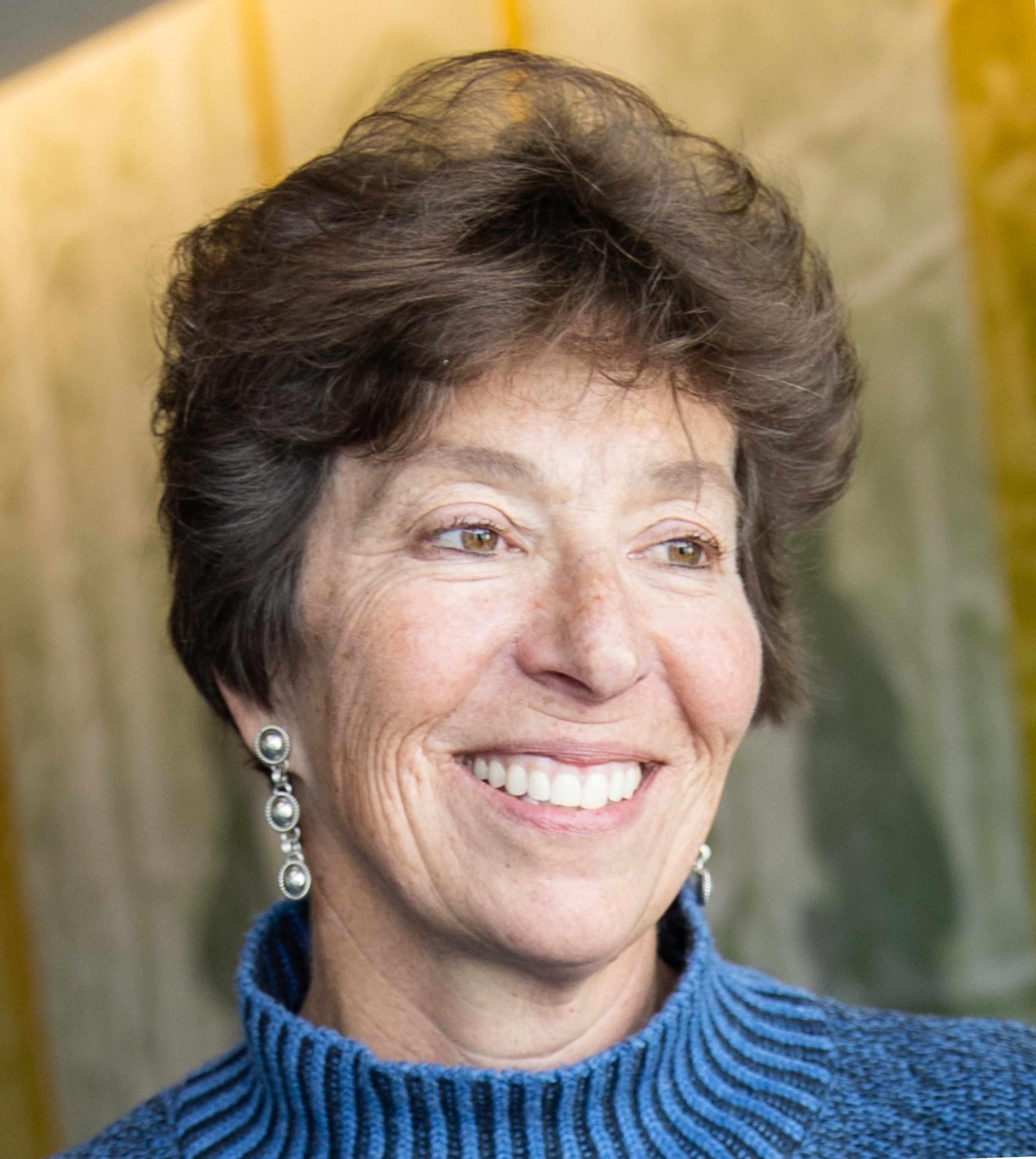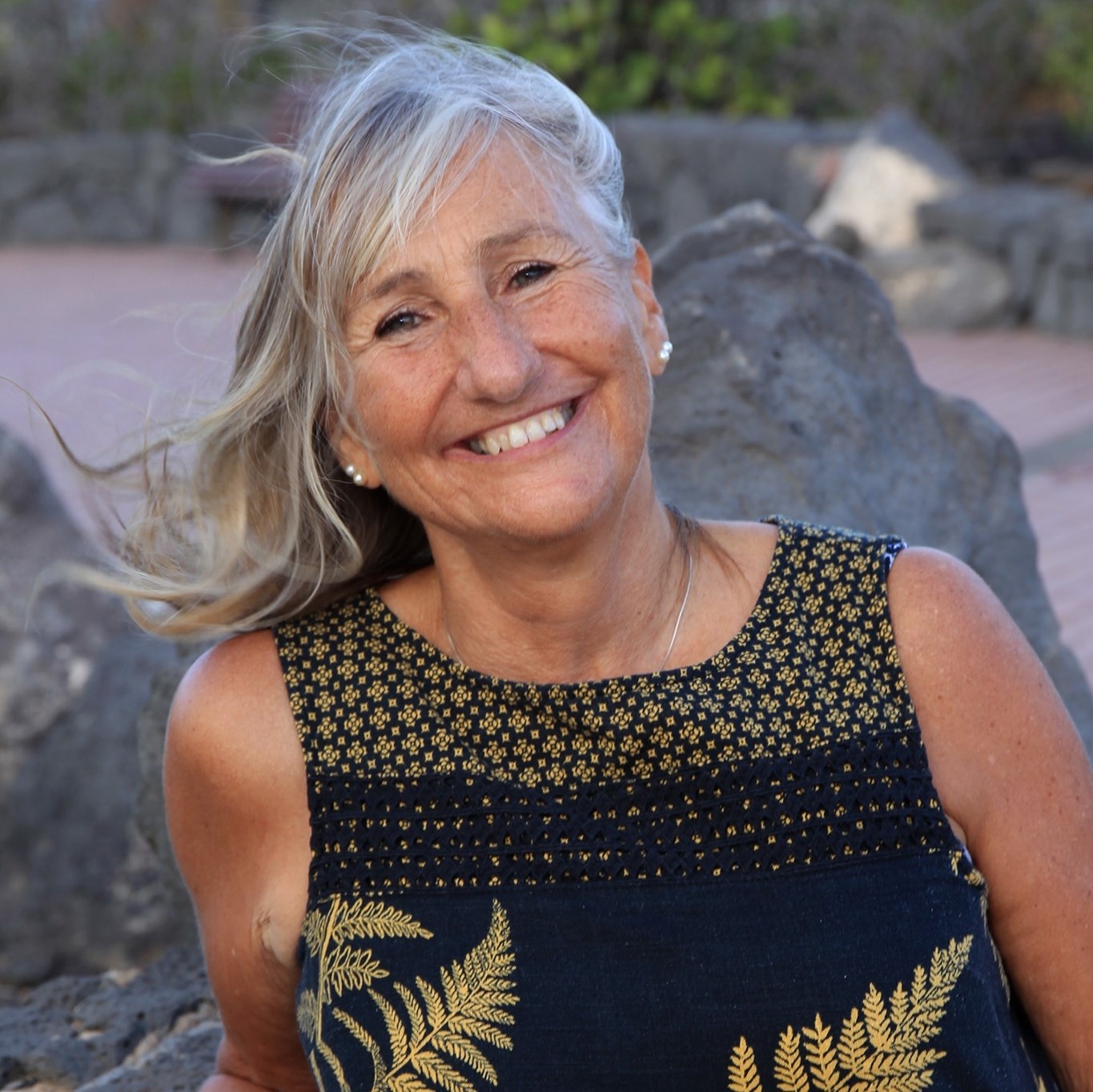|
Sept.
18, 2024

Released in July 2024, ACSM’s Essentials of Exercise Oncology, was written by leading experts to provide an approachable introduction to exercise oncology and unparalleled preparation for those preparing for credentialing in exercise oncology.
Drs. Schmitz, Schwartz, and Campbell shared more about some of the changes that readers can expect to see in this new book.
A first edition textbook is a complex and time-intensive project! What led you to develop ACSM’s Essentials of Exercise Oncology?
Development of the exercise oncology workforce is a key tenet in the efforts of the Moving Through Cancer taskforce to make exercise standard of care in oncology. We thought that an undergraduate textbook might help guide exercise science students toward this rapidly growing field!
Exercise oncology is an emerging field that some may not be familiar with in terms of a career path. What types of careers would someone who would be studying from this book or taking a course using this book be looking to go into?
People interested in becoming exercise professionals will certainly be interested, and people interested in careers in medicine, nursing, physical therapy, or occupational therapy will be far ahead of their counterparts if they study this book or take a course that immerses them in exercise oncology. In addition, there are hundreds of hospitals and community programs that offer exercise programming to people living with and beyond cancer who need staff. These programs often have to train exercise professionals to work with cancer patients – they are looking for exercise professionals who already have this knowledge base.
What is unique about ACSM’s Essentials of Exercise Oncology that sets it apart from other texts in the market?
To our knowledge, this is the first comprehensive exercise oncology college textbook on the market! To help students the book includes case studies, videos and study questions with detailed rational for each possible question. To make it easily adopted by instructors the instructors book comes with PowerPoint decks for each chapter and a test bank.
The book supports those working in the field and those teaching/studying the material in courses. Who else could also benefit from using this text?
Is this book an appropriate resource for individuals who are preparing for the ACSM-ACS Cancer Exercise Specialist Course?
The online course learning content is delivered over 12 modules. Each module is comprised of a series of short videos with subject matter experts presenting each topic. Each module starts with learning objectives, and within each module there are interactive quizzes to provide ongoing feedback to the student. Additionally, 12 case studies of clients based on real life scenarios are included. Students will refer to these case studies in selected quizzes. At the end of each module, the student can test their knowledge with multiple-choice questions. This book is an appropriate resource to use with the ACSM-ACS Cancer Exercise Specialist course as it provides a clear, step-by-step introduction to cancer epidemiology, pathophysiology, diagnosis, treatment and the nuts and bolts of exercise prescription during treatment and into survivorship. Information is included about the psychological issues that can be barriers to success and how to overcome them.
As a benefit to instructors who adopt this text, it comes with a host of ancillary resources, including videos. Can you tell us about those?
We filmed multiple videos with actual cancer patients and survivors to bring the text to life for readers. There are also study questions and review materials. We hope they are helpful!
Anything you would like to add?
Be careful! Once you start working in exercise oncology, you’ll never want to work with any other population! People living with and beyond cancer are among the most inspiring people you will ever meet.
Faculty can request a review copy of the ebook and teaching resources here.
 Kathryn H. Schmitz, PhD, MPH, FACSM is a professor of medicine at the University of Pittsburgh School of Medicine. She serves as associate director of population science and co-leader of the Biobehavioral Cancer Control Program for the UPMC Hillman Cancer Center. Dr. Schmitz is the founder of ACSM’s Moving Through Cancer initiative, which has a bold goal of making exercise a standard of care in the setting of oncology by 2029. She is a past president of ACSM and the recipient of the prestigious Citation Award from ACSM, the Distinguished Scientist Award from the Society of Behavioral Medicine, an honorary fellowship from the Faculty of Sport and Exercise Medicine U.K., and the American Cancer Society’s Clinical Research Professorship.
Kathryn H. Schmitz, PhD, MPH, FACSM is a professor of medicine at the University of Pittsburgh School of Medicine. She serves as associate director of population science and co-leader of the Biobehavioral Cancer Control Program for the UPMC Hillman Cancer Center. Dr. Schmitz is the founder of ACSM’s Moving Through Cancer initiative, which has a bold goal of making exercise a standard of care in the setting of oncology by 2029. She is a past president of ACSM and the recipient of the prestigious Citation Award from ACSM, the Distinguished Scientist Award from the Society of Behavioral Medicine, an honorary fellowship from the Faculty of Sport and Exercise Medicine U.K., and the American Cancer Society’s Clinical Research Professorship.

Anna L. Schwartz, PhD, FNP-BC, FAAN is Professor & Charlotte Peck Lienemann & Alumni Distinguished Chair in Nursing College of Nursing at the Omaha Division University of Nebraska Medical Center. She is also President and CEO of Coleman Health, LLC. Her research focuses on exercise oncology interventions during and following cancer treatment. She has studied the effects of exercise on fatigue, quality of life, and body composition. She worked collaboratively with YMCA-USA and Livestrong to develop Livestrong at the YMCA, a nationwide cancer survivor exercise program. She is a member of ACSM’s Moving Through Cancer taskforce.

Anna Campbell, PhD is Professor in Clinical Exercise Science at Edinburgh Napier University and Director of CanRehab, Ltd. Her research is based around the development and testing of pragmatic interventions for cancer survivors and examining the effects of physical activity/exercise on cardiorespiratory fitness, active daily living, psychological wellbeing and quality of life. She is a member of ACSM’s Moving Through Cancer taskforce.